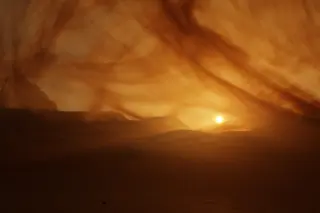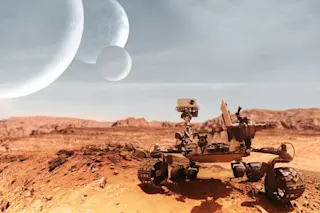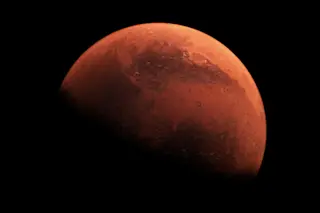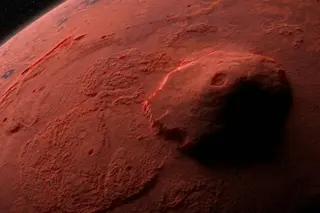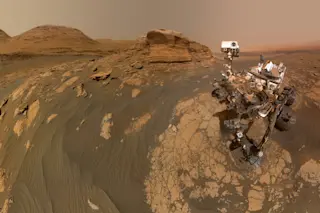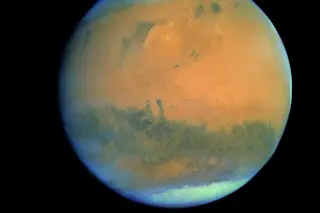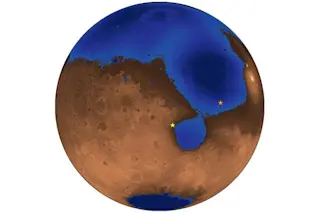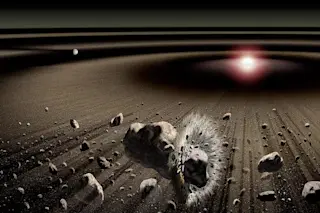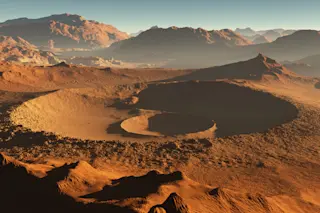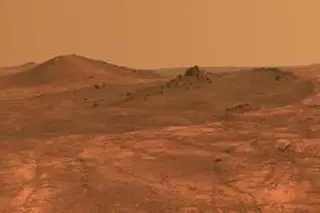Chalk another discovery up to the Mars Phoenix Lander. Several months after finding water ice beneath the Martian soil, the NASA robot has now turned its gaze upward to the sky, and has observed a light snowfall over the polar region. Scientists
said the discovery of snow on Mars was made by an instrument that shined a laser into clouds about two miles above the ground, revealing the presence of ice crystals. "Nothing like this has ever been seen on Mars," said [scientist] Jim Whiteway [Los Angeles Times].
The ice crystals quickly vaporized as they fell through the atmosphere of Mars, but researchers say they'll be watching during the next two months to see if the snow ever reaches the ground. Over the past few months, as the Martian winter has moved in, Phoenix has also observed frost, ground fog, and clouds of ice crystals. In another recent experiment, Phoenix ...



